Woo hoo! I’m back with another Cookier Close-up! I beg your pardon for being so tardy with these interviews (this month’s Q&A is with our April site artist! ![]() ). My excuse: 2021 has been a crazy year mostly because of the ongoing pandemic challenge, which has caused me to reinvent my business in various ways. What you may not realize is that, behind the scenes, I’ve been working on two new international joint ventures and a complete overhaul of my 12-year-old business website, on top of trying to keep my classes (now in Zoom format), videos, stencil line, and this site going. But, enough about me! Fortunately, our April artist, the amazing Elke Hoelzle, is as patient as she is talented. 😘 to Elke. The delay in getting you this interview is entirely on me!
). My excuse: 2021 has been a crazy year mostly because of the ongoing pandemic challenge, which has caused me to reinvent my business in various ways. What you may not realize is that, behind the scenes, I’ve been working on two new international joint ventures and a complete overhaul of my 12-year-old business website, on top of trying to keep my classes (now in Zoom format), videos, stencil line, and this site going. But, enough about me! Fortunately, our April artist, the amazing Elke Hoelzle, is as patient as she is talented. 😘 to Elke. The delay in getting you this interview is entirely on me!
As you might remember from Elke’s site artist intro in our forums, she is a 51-year-old single mom who is living in Brazil, another country quite hard hit by the pandemic. Elke started cookie decorating in 2016 when doing a project for culinary school, and has quickly established a reputation in Brazil and on this site for elaborate and intricate work that uses a wide range of techniques. Elke joined Cookie Connection in April 2018, and, in 2020, founded the Brazilian Society of Cookie Artists, which I am quite interested to learn more about. She’s also active in the boy and girl scout movement in her country and has been an avid spelunker for 38 years!
So, let’s learn more about Elke, shall we?
![]()
JMU: Hi, Elke! I am so looking forward to this interview. Thank you for agreeing to it, and waiting so patiently to receive my interview questions. We had a few opportunities to chat during COVID lockdowns via our Cookiers Helping Cookiers live chat series, so I want to pick up where we left off in our last Zoom call.
I believe that last chat was in October 2020, and you were also trying to reinvent your cookie business because it had been seriously impacted by the pandemic. Can you start by telling us what your cookie business looked like before the pandemic? Was cookie decorating your full-time occupation at that time? Were you both selling cookies and teaching, or doing one or the other? How many cookies on average per week were you selling, and how many classes were you teaching?
![]()
EH: Hi, Julia! First, I want to say how incredibly humbled and honored I am to be here. A little more than three and a half years ago, I would never have dreamed of a moment like this. Thank you for this opportunity. My cookie business looked a lot different before the pandemic! Because of my cookie art, I was able to create good relationships with the most prestigious party planners in my city and around the country, so I was providing special cookies, more than 10 inches big, to decorate party tables as a focal point. I was making cookies for about nine parties per week, with me working 80 hours per week to be able to deliver my orders. It was a full-time job, and my only source of income. Producing uncommon cookies full of details limited my production to about 30 cookies per week, of various sizes and degrees of difficulty. I was getting very tired and not so happy with the fact that I didn’t have much time to do the cookies I wanted. Besides, my cookie pricing was never up to par with the artistic value. It was normal to sleep only four hours every night. I could spend five days working on a set of three cookies for one party planner. Let’s say I like to impress, that my satisfaction with the end result is more important than the price I gave to the client. With the cookies so unusual and big, many students came to me for classes, and I discovered a better way to make money: to teach. I started to do both, offer classes and orders. My classes were one on one with up to six students. I had about 10 students per month before the pandemic. Teaching is really something that I like to do, to my surprise.
![]()
JMU: After COVID-19 hit in early 2020, how was your business impacted?
![]()
EH: When the pandemic hit in early March, everything I was doing came to a complete halt. My city had all parties prohibited on March 17, 2020, and only lifted this prohibition in part in early May 2021. At first, everybody was so scared and nervous to do anything, and I had no income from cookies for many months. I lost the ability to do classes as well. To make matters even worse, I had all of my stimulus checks hacked. In May, we had a Zoom Cookiers Helping Cookiers live chat, and you all gave me the idea of doing classes online. However, two weeks later, my computer broke for good. I spent the next six months without a computer. Therefore, I never did it. I had to learn how to capture video and edit and render it on my cell phone to keep my YouTube channel going, and it was a learning curve, for sure. I had started my YouTube channel CookieCamp that month. The channel is aimed at helping ladies around Brazil learn how to decorate cookies and generate some income. I have about 12,000 subscribers now, and have helped and changed the lives of many Brazilians, like your channel changed mine, Julia. I was going through such financial hardship. I thought that giving back what I knew could help others going through the same challenges as well.
![]()
JMU: What a story, and how generous of you to give back at a time of difficulty! Great success with the channel as well! Can you tell us a bit more about how you adapted your cookie-making business, and how this change in approach has worked for you?
![]()
EH: Funny how life is, Julia. Before the pandemic, I would pray to God to give me the chance to stop receiving orders. I would humbly ask Him to let me create art cookies and be able to live from them. So, during the first months, I had to count on the help of some friends and family to make ends meet, and sold many of my most valued possessions to pay bills and accumulated debt, of course. I decided to be more active on my Instagram page, and the overwhelming response to my YouTube channel kept me going. I suddenly found my purpose in life. It is to help others. The church family was of great support. One order here and there would come. I had to follow all protocols and change the way I would normally do things. Today, I am keeping my orders to a minimum. I got an old and outdated computer and started videotaping short and affordable cookie classes. The computer is too limited to do long videos. However, it has helped me start fixing my financial burdens. Because I am not doing my typical party cookies, I tend not to attract many orders any more. But I asked God for this, He answered me, and so now I am totally focused on online classes. I never did a Zoom class, as I am too nervous about the idea of a live class. I don’t know how teachers do classes using Zoom, so I keep postponing it. So far, this change has helped me achieve my goals.
![]()
JMU: Again – wow! I am impressed with your adaptability! But . . . do you ever hope that your cookie-making business will go back to normal, or expand into other segments of the market. Maybe not fancy party cookies, but something else?
![]()
EH: My cookie business will never be back to normal. First, I no longer show many cookies for parties on my Instagram page, and, because I stopped doing characters like Marvel, I tend not to have much exposure to that market any more. Parties in my city are still limited to this day. Most of my clients are reinventing themselves, and they have changed the way they do parties. Others lost their businesses or gave up altogether, and many, many of them look for price, and my cookies tend to cost a little more than those of most cookiers. However, I have to keep things going and survive this difficult phase, and it is giving me a chance to make online classes, dedicate myself to my CookieCamp channel, and grow the Brazilian cookie market. Brazil is going to take many years to recover . . . my city and the cities around the capital are broke and in bad financial shape. The money does not flow any more. Besides, the Brazilian government’s response to the pandemic is a horror story.
![]()
JMU: What are some of the biggest lessons you learned from managing your business through this incredibly difficult time? Are there any COVID-era business strategies that you adopted that you intend to continue even after COVID is under control? If so, which ones and why?
![]()
EH: The two biggest lessons I’ve learned through the pandemic are how little I knew about digital marketing and how I needed to rewrite my baking process. As I said, I made the decision to finally start my YouTube channel. For two years, my very dear friend and fellow church member, Regina from Utah, tried to convince me about going public and teaching people the art of cookie decorating through a YouTube channel. I had to feel ready to teach and speak in public. Going live on Instagram, all the posts, the strategies . . . it was overwhelming at first. Now I am enjoying the process, although I have so much to learn. To produce my cookies for orders, I had to pay extra attention to my health all of the time and be extremely careful with all of my actions. I liked using masks during the baking process. I don’t plan to stop this protocol any time soon.
![]()
JMU: Let’s turn to the Brazilian Society of Cookie Artists that you founded, because the idea of it completely intrigues me! I don’t believe we have any similar membership-based cookie organization here in the US. The only one that might come close is the Cookie Cutter Collectors Club, where I just taught an online class, BTW. What is the mission or goal of your society? Why did you found it, and can you describe its operations?
![]()
EH: I founded the Brazilian Society of Cookie Artists around the same time that I launched my channel. Before the pandemic, Brazilian cookiers were doing very similar cookies, many very well done, but not much art involved. I felt the need to push the limits. I got inspired by your site Cookie Connection and by the private group Bakerswood on Facebook. My friend Martha Rocha and I wanted to provide opportunities to the cookie community to make cookies that are artistic and, in so doing, show the Brazilian public that cookiers can be at the same level as cake artists. We create challenges every three months, and a contest every November, following international guidelines. It has been a success.
![]()
JMU: Wonderful. So it too got launched mid-COVID – wow! What challenges, if any, did launching at that time present, and how did you overcome them?
![]()
EH: One of the challenges we have is that the legal process to register the society has been delayed by the pandemic, as we are a non-governmental, non-profit entity. As soon as we have the green light, we are going to start the membership process. We have more than 4,000 members in our Facebook group. We are very curious as to how many will be willing to subscribe. The society wants to invite world-class teachers to come to Brazil, provide affordable classes, organize charitable cookie events like the ones you Americans do to help others in need, and grow our niche as much as possible. We have already seen the growth of the cookie community as a whole. The seed is sprouting. I feel blessed.
![]()
JMU: Congrats! Do you envision the society changing in its mission or operations in the post-COVID era? If so, how?
![]()
EH: The society is changing its focus to help cookiers improve their skills as much as possible, as opposed to only focusing on cookie art. Many Brazilians were hit hard during the pandemic, so helping other cookiers to grow has become our most important aspect. With the membership, one of the things we intend to do is give access to information as affordably as we can. We have the dream to be able to donate tools and materials to very low-income members. They would be suggested by other members, and we would go through a vetting process. We are participating more and more in the pastry world. The society is solidifying its importance. We were just invited to be part of a very large and famous culinary event called Expo Cakes Brazil, and the society is organizing a cookie pavilion, which is unheard of in our country.
![]()
JMU: How exciting! I love to hear about all of the creative new ventures spawned during the pandemic. There have been many, as almost everyone I know has been forced to think and live outside of the box! We are resilient people as a whole! Now, let’s turn to your cookie decorating style for a bit. In your bio in your April forum intro, you said you like a good challenge, specifically you like to “choose the most difficult sources of inspiration to transform into cookies”. Why is this? Why not take an easier approach, particularly when selling to customers who, as you said, are often not willing to pay for the work that goes into a challenging design?
![]()
EH: One of the reasons I started choosing the most difficult sources of inspiration was because I started selling decorated cookies in September 2017 and I felt I was so behind, since the cookie market in Brazil was more than 10 years old. I needed to impress my first client at any cost. She was a famous event planner, and the circus cookies I made for her two-year-old son’s party were so elaborate and full of details that she ordered cookies for all of her parties after that. I got many clients like her. I could not go back to doing simple cookies any more. That first set paved the expectations. I helped many party planners increase their popularity and demand because of the artistic cookies I was making for them. I also liked pushing my limits - it really made me feel good, getting difficult orders. I would feel scared, close my eyes, take a deep breath, and get to work, like a crazy lady.
The other reason, aside from challenging myself, was the reaction of the clients. They felt special and unique. I would never repeat a cookie; each one was one of a kind. The clients’ joy and satisfaction made me feel so good. Those interactions were priceless moments for me. My cookies were almost double the price of other colleagues, however, still below what I really deserved. For me, easy is not fun, so I choose the hard way.
![]()
JMU: LOL – we are alike in that way! I thrive on a good challenge, in cookies and elsewhere in life! What’s been the most challenging cookie you’ve done, in your opinion, and what made it so challenging?
![]()
EH: The most challenging cookie I’ve done was a life-size Russian doll (18 inches) for the Brazilian Cookie Contest in 2018, pictured below. I was fresh in the cookie world, and didn’t have much experience at all. I watched your 3-D cookie videos countless times, learned how to do edible fabric, and embarked on a complex project only seven days before the event. The doll wouldn’t stand and ended up falling on the ground, but I was able to fix everything, and got her laying down on a base. During the congress where the contest occurred, I would watch in horror as people whispered, “that ‘thing’ couldn’t be a cookie.” Much to my dismay, the judges did not believe it as well, so they barely gave points to my doll. I didn’t know or have the international rules that stated I could show my progress pictures to the judging body, and they never asked. I ended up winning Best in Show with my Christmas cookie set (one cookie in that set is pictured above), but I came back home very frustrated and underappreciated. After that experience, I realized how behind the Brazilian cookie culture and know-how are, as compared to other countries. It was then that I started thinking about creating something like what eventually became the Brazilian Society of Cookie Artists.
![]()
JMU: Speaking of “challenging”, how often do you enter your cookies into competitions? What have been your key lessons learned from competing?
![]()
EH: I just love cookie competitions, Julia! I've entered a few. As I mentioned, in 2018, I won first place in the Christmas Category and Best in Show at the Brazilian Cookie Contest. In 2019, I won two second places and two third places in the same contest. (The 3-D mouse and bird piece below was the second-place winner.) The pandemic gave us the opportunity to be part of some online events that would otherwise have required traveling and a large investment. I had the chance to be part of the first online Cake International Show, where they had only one winner for the cookie category, and that winner was the marvelous Silviya Jankowski from Bicky Piccy. Silviya was also the only winner at The San Diego Show in 2020. I entered the second online Cake International Show as well, and got “Commended”! I was so happy, because they decided to give us feedback and score sheets. The judges’ feedback is the most important thing for me, because I can see my work through others’ eyes and realize how much I need to improve. I’ve missed many chances lately to be part of competitions, but, this year, I am already enrolled in the Bybora “I Am the Cake Star” competition. This competition comes with great responsibility, since I am Bybora’s ambassador in Brazil. I am going to try to enroll again in the Cake International Show, and I can’t wait to be part of your competition! My other big dreams are the competitions hosted by CookieCon and Cake Masters Magazine. Some day!
![]()
JMU: I am so glad you’re planning to enter my competition. One nice consequence of the pandemic is that it is online in 2021, and open to cookiers across the globe!
![]()
EH: Yes, I honestly cannot believe that this opportunity is here for us! I can’t wait to start my project! I confess that I am intimidated though. I don’t want to disappoint!
![]()
JMU: Well, my competition has always been less about winning and more about learning and growth. Keep that in mind, and hopefully your fears will all fade away! On to another favorite topic of mine: cookies and sweets in other countries! Do you have any special cookie (or sweets) traditions, recipes, or ingredients in Brazil that you think members should know about? If so, please describe them.
![]()
EH: One of the special sweets we have in Brazil is called brigadeiro, and it can be found everywhere in Brazil. It’s so simple to make, calling for only a can of sweetened condensed milk, a tablespoon of butter, and four tablespoons of Nesquick or powdered chocolate. There are many variations, some more fancy than others, but they all depend on condensed milk. We consume tons and tons of sweetened condensed milk every year in Brazil! You just take your pan to medium heat, and mix those ingredients together in it until they are the consistency of loose polenta. Then, let the mixture cool, form it into balls, and roll the balls in chocolate sprinkles. That’s it. Just don’t overcook the mixture, or the brigadeiro will become very hard as they cool down. Every single party, wedding, or celebration in Brazil has to have many flavors of brigadeiro. It’s a Brazilian obsession.
![]()
JMU: You are right – I have been tempted by so many types of brigadeiro each time I have travelled to Brazil! So . . . spelunking! I can’t end the interview without asking about it! How did you get into it, and can you describe your most recent spelunking adventure? Where did you go, and what did you see? And, I just have to know: does spelunking influence your cookie decorating in any way? ![]()
![]()
EH: I got into spelunking while in boy and girl scouting in the early 2000s. One of our scout masters was the president of a spelunking grotto in my city. There are hundreds of caves to explore in my state of Minas Gerais. My most recent expedition was for a professor’s doctorate thesis, to retrace the steps of the very important Danish paleontologist, zoologist, and archeologist Peter Lund, the father of the Brazilian paleontology. Dr. Luciano Faria wanted to find some of the forgotten caves that Lund explored. We needed to survey the possible caves and compare the mapping with century-old books and drawings done by Lund in the city of Lagoa Santa. I am a sketcher during cave surveys or cave mapping, and was one on this recent expedition too. I am responsible for controlling the pace of the survey and am leader of the team, because I have to record the survey measurement data (direction by azimuth, inclination by a clinometer, and distance by a stretch-tape), record the data, and draw the cave details, such as its shape, changes in elevation, irregularities, flowing water, and other notable features. I also have to make a scale representation of the survey path through the cave. Those data are later transformed by me or the cartographer into a map using geometrical calculations. I think that a good sense of space certainly comes from cave mapping. I have to draw by hand an exact replica of the cave, and that may very well help me during cookie decorating.
![]()
JMU: So fascinating – glad I asked that question! And, last but not least, my usual parting question! Where would you like to see yourself in the cookie decorating world three years from now? Do you see yourself doing more or less of anything, or taking on any new cookie-related activities, such as teaching more or in different ways, creating or selling products, or something else? Why would you like to go in this direction?
![]()
EH: I would like to see myself as head of a well-established and prosperous Brazilian Cookie Society, have a series of online classes available, and maybe a little online store of cookie products. But also, I would love to have under my belt more experience in contests around the world. I am just fascinated by contests. I could spend all of my day working on cookies of any kind for competitions. With that knowledge and experience, when I am older and wiser, I would love to be a judge of a worldwide competition. Thank you for this opportunity, Julia!
![]()
JMU: You’re welcome! I so appreciate the candor and thoughtfulness expressed in your interview, especially in relation to your pandemic challenges. So thanks to YOU for sharing so deeply and honestly. It’s been a huge pleasure getting to know you better!
Again, Elke joined Cookie Connection in April 2018, just a few months after starting her cookie journey. You can follow her cookie pursuits here in her Cookie Connection portfolio and also on her Instagram page and YouTube channel.
Cookie and photo credits: Elke Hoelzle

Cookier Close-ups is the place on Cookie Connection where we celebrate the change-makers of the cookie decorating world. Whether forging new enterprises, inventing novel decorating techniques, or consistently charming us with their cookie decorating prowess, each of our featured thought leaders has redefined in his/her distinctive way how we interact, create, or otherwise do business here in cookie space!
If there are other cookiers you'd really like to get to know, please post requests in this forum. We'll do our best to round them up for an upcoming Cookier Close-up! Thanks!



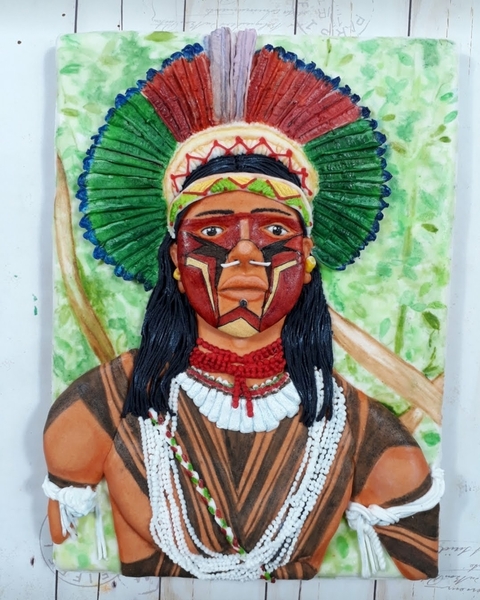
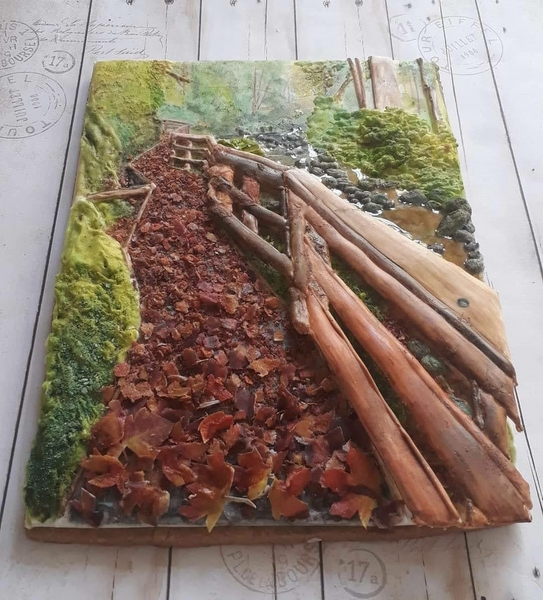

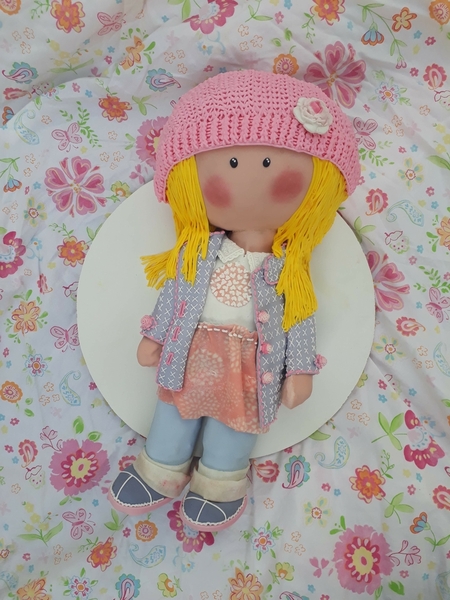

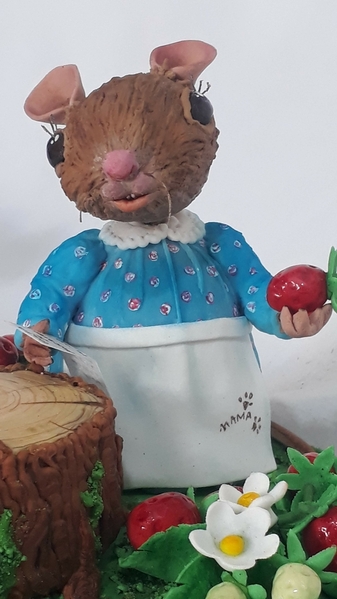



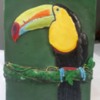


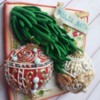

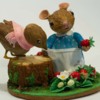

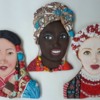
Comments (14)